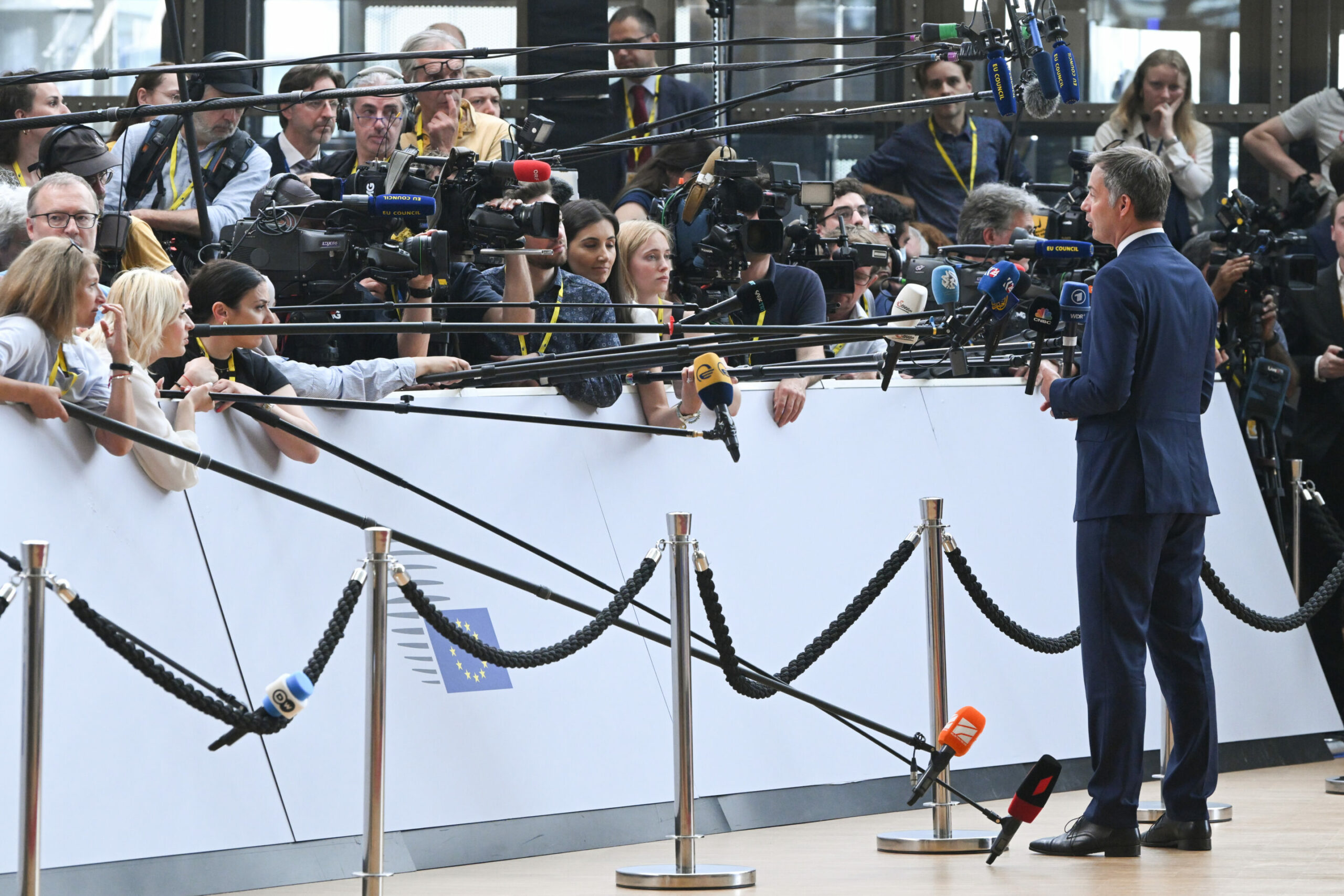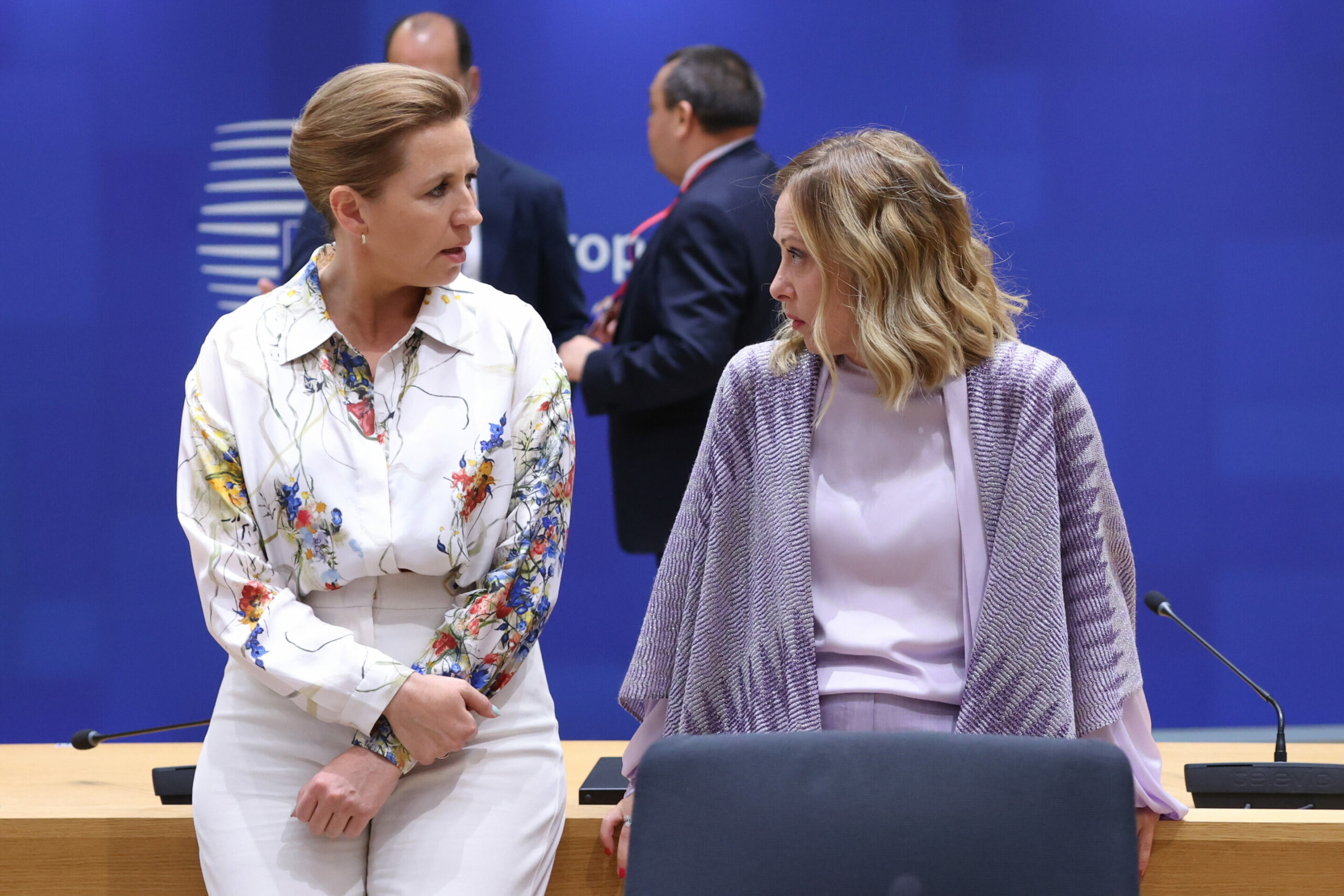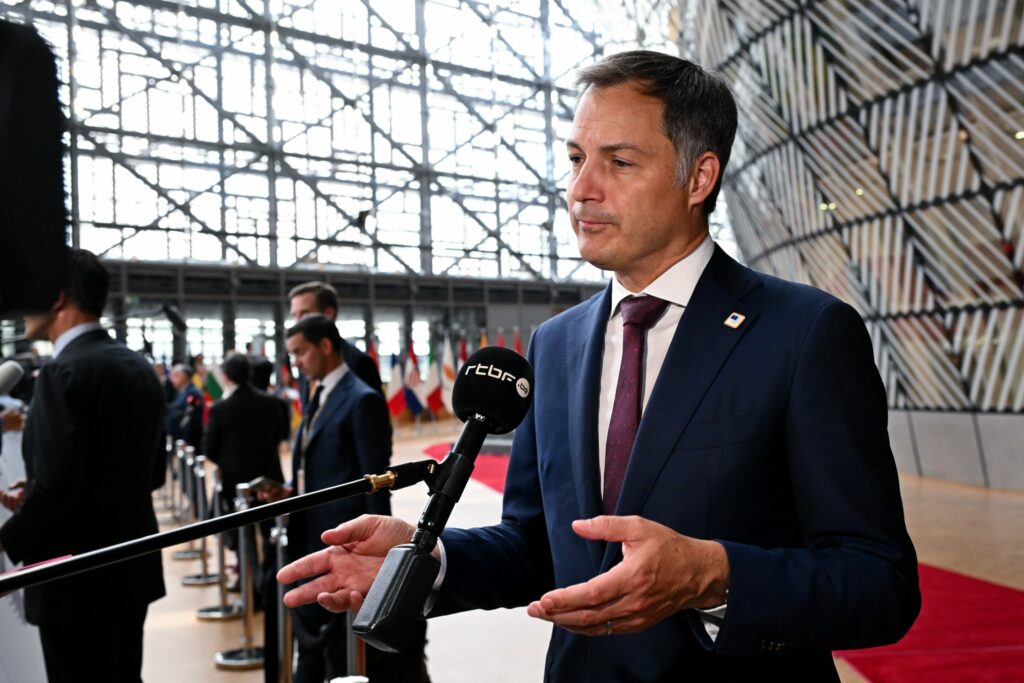Belgian Prime Minister De Croo pushed back against the criticisms made by far-right Italian Prime Minister Giorgia Meloni over the backroom deal made by six EU leaders for a second von der Leyen term.
As momentum builds to fill the so-called "top jobs", Meloni's angry criticisms relayed to the Italian Parliament on Wednesday over the proposed deal for the EU institutions were dominating in the build-up to the summit.
When asked about them, a smiling De Croo resorted to a Dutch proverb. "Sometimes the soup is not eaten at the same temperature that it is being served," he said. "It basically means: yesterday was yesterday, let’s listen to what is being said around the table today."
What's being discussed?
EU leaders are meeting on Thursday afternoon and Friday to try and agree who will lead the main EU institutions and the priorities they will have to implement over the next five years.
De Croo, presiding over his last European Council as head of the Belgian EU Presidency which ends at the end of the month, paid tribute to the work done by his country at the helm of the Council of the EU.

Outgoing Belgian Prime Minister Alexander De Croo speaks to reporters on Thursday, 27 June 2024. Credit: European Council
"Well let me first start with what is the main reason why we're here. It's the end of the Belgian Presidency, a presidency that I think you could call a deal-making presidency. A tremendous amount of work has been done," De Croo told reporters.
Thursday's summit began with "special guest" Ukrainian President Volodymyr Zelenskyy’s arrival in Brussels to sign security guarantees with the EU – but also to thank the leaders in person for opening negotiations on his country’s accession to the EU, and give an update on the situation on the Russian invasion.
"First of all in the domain of Ukraine, the 13th and 14th packages that have been agreed, opening of the accession discussions, a deal on immobilised assets, a lot of things have happened in that domain," De Croo continued.
On the legislative side, the Belgium has concluded one file for every working day during its Presidency of the Council of the EU, so a "tremendous amount of work" has been signed off, De Croo added. But the outgoing Belgian Prime Minister was still looking ahead to the next five years for the EU.
An eye on 2029
"On the future, on the next five years, we came out with a list of priorities which are agreed on, which is putting competitiveness really at the core of our economic policy, defence and security of course, migration, and our values. I think that now the priorities have been set."
Indeed, all so-called "top jobs" seems all but decided. A pre-agreement was reached on Tuesday by six heads of state and government – including German Chancellor Olaf Scholz and French President Emmanuel Macron – representing the parties in the grand coalition (EPP, S&D and Renew) who all called upon to support a von der Leyen II Commission.
The new EU leadership deal would see the German conservative Ursula von der Leyen (EPP) return for a second term at the head of the European Commission, the Portuguese socialist Antonio Costa (S&D) would succeed the Belgian liberal Charles Michel as President of the European Council. The Estonian liberal Kaja Kallas (Renew) would take the place of the Spanish socialist Josep Borrell at the head of EU's diplomatic service, the European External Action Service (EEAS).
However, the S&D are insisting that their support of a second von der Leyen term is "not a blank cheque", with von der Leyen having to show "clear commitment with our agenda and priorities: a social and climate agenda, rule of law, defense and security, housing and workers’ rights."
Meanwhile, on the EPP side, Polish Prime Minister Donald Tusk went on the charm offensive, telling reporters: "There is no Europe without Italy and there is no decision without Prime Minister Meloni."
Back in Italy, the far-right Prime Minister had denounced the EU's "oligarchy" on Wednesday after being kept out of these negotiations. Meloni is keen to raise the stakes in order to secure an executive vice-presidency of the Commission for Italy, and intends to bank on her strong electoral results in the last European elections.

Roundtable at EU summit, Thursday, 27 June 2024. Credit: European Council
Hungarian Prime Minister Viktor Orbán, another loud critic, also called the backroom deal "shameful" on social media.
But the outgoing Belgian Prime Minister was clear that the so-called "backroom deal" was not-antidemocratic, but an expression of democracy and finding compromises – a political norm that he is used to from the Belgian context.
"You have to look at what is a coalition of political groups that can work together, because what we need in the next five years is stability, political stability, and being able to act fast. Then you look around in the European Parliament and there are three groups that are willing to work together," he said.
The Belgian leader added that it is natural to want to form a coalition of political groups that want to provide stability and be action-orientated by nominated "three very high-quality names" having been put forward, something which was echoed by the outgoing Dutch Prime Minister Mark Rutte, who will become the next NATO chief.
"That's how democracy works. Democracy is not only about blocking, democracy is about who wants to work together. And those three political groups are willing to work together to the benefits of all Europeans," De Croo concluded.

